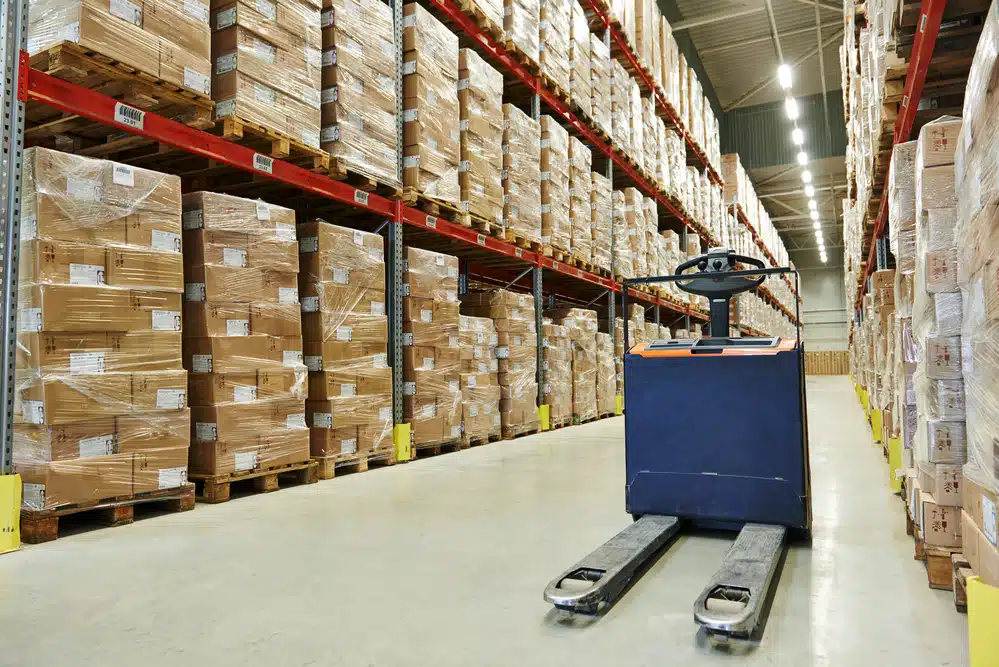Article At A Glance
- Food brands rely on co-packing to get their products to a wider audience.
- With a third-party co-packer, you can earn extra revenue without straining your resources.
- Co-packing provides ample benefits for restaurants and independent food sellers.
Do you want to increase revenues for your restaurant? Consider selling some of your products, such as secret recipe barbecue rubs or sauces, to the general public. Teaming up with a co-packer provides the perfect way to bring your products to a wider audience and increase profits.
What is co-packing? This helpful guide will help you discover the answer and the benefits of co-packer services. Trust B & B Food Services as a third-party contractor to assist your business with co-packing services and reap all of the benefits.
Co-Packing in the Food Industry
What is co-packing? It’s short for contract packaging, which means hiring a third-party manufacturer to package and distribute food products for your brand. Your contracted supplier will handle all of the logistics to get your product out to the public, including:
- Production
- Packaging
- Labeling
- Shipping
These outsourced packaging solutions make it possible for you to market your products to countless people and drive revenue for your brand. Deciding to partner with an industry co-packer can be a great way to boost your business, given the many benefits it provides you.
Co-Packaging Benefits for Restauranteurs
Say you operate a successful restaurant and have customers rave about one special item on your menu, such as chicken wings tossed in a signature sauce or authentic Italian dishes featuring housemade marinara. Why not capitalize on the buzz your item receives and make it widely available for consumers to buy? That’s where co-packers come in.
Your contractor will mass produce your signature item, package and label it under your brand, and distribute it to stores in your area. Check out some of the key benefits of co-packer services that await you.
You Save Money
One of the biggest advantages of using co-packing is the savings you’ll see. Taking on a massive production project on your own will likely require you to invest in a facility, fill it with the necessary equipment, and hire workers to handle the task. All of these components add up to a lot of capital for any business owner.
Co-packing cuts down on upfront costs because contractors already have access to the necessary equipment and a trained workforce specializing in both product manufacturing and packaging. You can get right to work manufacturing your product for the masses rather than face delays while you search for the perfect facility or train your staff.
Professional contract packaging providers dive right into producing your item and promise to get it on shelves quickly. Let their experts handle the production aspect while you focus on promoting your brand.
You'll Increase Business Revenue
What is co-packing? If not, is it an excellent way to boost your revenue? Mass-producing a signature item under your brand’s name and selling it in grocery stores opens your business up to a whole new revenue stream. Even if your restaurant faces slow seasons in-house, you’ll still generate sales thanks to products that are available in stores.
Loyal customers will continue to support your brand, while others in the community may discover your item and purchase it frequently. Start out with products that are in high demand from consumers and gradually increase your offerings. Thanks to this extra source of revenue, you’ll have a thriving business.
You Can Scale Production Up or Down
Production flexibility is one of the top co-packer benefits. Contractors understand ways to ramp up their supply chain’s speed and deliver more products according to demand while also scaling back so they can save money during slower seasons.
Say you enlist a contractor to produce and distribute bottles of your signature marinades. Sales data shows that more people purchase the products during the summer and fall than at other times of the year. One of the main benefits of co-packer services is that you’ll receive customized solutions to meet the demands of your customers.
In this example, your co-packer would increase production before and during peak sales months and then scale back their efforts when demand is lower. This flexibility ensures that you save money on production costs and minimize waste.
You Can Streamline Your Operations
Are you still wondering, “What is co-packing, and is it worthwhile?” Since contract packagers take care of all aspects of the supply chain, you’ll be able to operate your business as normal while still enjoying extra revenue.
Imagine the alternative of producing your item in your restaurant or an outside facility. You must go through the work of making the item, packaging it safely, and storing it before distribution. You then have to arrange safe ways to transport the item to local shops where you wish to sell it.
Additional Read: Why Local Wholesale Food Suppliers Are The Best Option For Restaurants
All of these steps require resources that you may not have and take you longer than anticipated to complete. Co-packing services facilitate the process by having staff complete all of these steps in one place. You’ll have your product get on shelves quickly with a reliable contract packager.
You'll Have Experts on Your Side
Between the many business-focused contract packaging advantages, it’s easy to overlook the importance of having industry experts in your corner. Co-packers have years of experience handling all parts of the supply chain. They not only understand the process of manufacturing and shipping various products but can even offer input regarding the product’s packaging design.
Save time and get the most bang for your buck when you hire a co-packer who provides design services and performs packaging analyses. These specialists will use their industry expertise to craft a product design that catches people’s eyes. With a packaging analysis, they can make the process even more efficient and ensure you’ll be shipping packages that contain a sufficient amount of your product rather than air.
How Co-Packing Services Continue to Innovate
Aside from “What is co-packing?” a common question industry professionals receive is, “How do co-packers improve their services?” Teaming up with a co-packer means having a contractor who’s always willing to improve. A lot of the industry’s innovations boil down to the technology contractors use in the supply chain.
Cutting-edge equipment allows co-packers to fine-tune every step of the process. Many systems provide real-time data which promotes the following:
- Maintain product quality control.
- Address delays and prevent them from happening.
- Troubleshoot minor problems within the supply chain.
As technology evolves, so does the efficiency of the co-packing industry. You’re in good hands when you hire an experienced third-party contractor to manufacture and ship your food product.
Additional Read: The Future of 3rd-Party Logistics in the Food Industry
Take Advantage of Modern Co-Packing Services with B & B Food Services
If you’re ready to embrace all of the benefits of co-packer services, reach out to the experts at B & B Food Services. We have effective solutions to streamline the production and order fulfillment processes so you can focus on what really matters. Our team understands the importance of supporting your brand and provides customized solutions for your product.
Give us a call at (815) 834-2621 to learn more and receive a quote.

